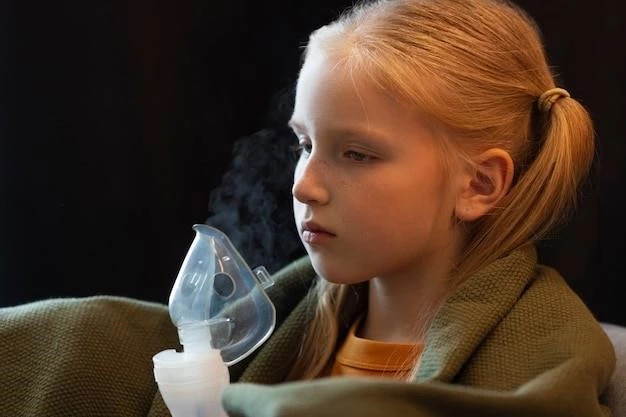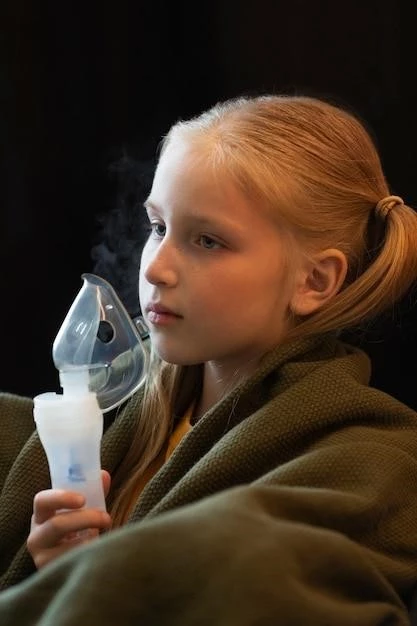Disease ─ Inhalant Abuse
Inhalant abuse, also known as sniffing or huffing, refers to the intentional inhalation of chemical vapors for the purpose of achieving a high or intoxication․ It is crucial to raise awareness about the dangers of inhalants and their harmful effects on health․
Individuals who engage in inhalant abuse are at risk of causing serious damage to their brain, liver, and kidneys․ Prolonged use can lead to overdose, addiction, and irreversible health consequences․ Recognizing the signs of inhalant abuse is essential for early intervention and prevention․
Seeking help for inhalant abuse is crucial for those struggling with addiction․ Addiction treatment, recovery, rehabilitation, therapy, and counseling are all effective ways to overcome inhalant abuse and regain control of one’s life․ It is important to prioritize health and well-being when addressing substance abuse issues․
Understanding Inhalant Abuse
Inhalant abuse, a form of substance abuse, involves the deliberate inhalation of various chemical vapors or inhalants to achieve a rapid high or euphoric effect․ Inhalants are commonly found in household products such as aerosol sprays, cleaning fluids, paint thinners, and gasoline․
Individuals may engage in sniffing or huffing inhalants by inhaling the fumes directly from the container, sniffing a rag soaked in the substance, or spraying the substance directly into the mouth or nose․ This method allows the chemicals to be rapidly absorbed into the bloodstream through the lungs, leading to a quick onset of intoxication․
It is important to understand that inhalant abuse poses serious health risks and can have detrimental effects on various organ systems in the body․ Inhalants can cause harmful effects on the brain, liver, kidneys, and other vital organs, leading to long-term damage if left untreated․
Regular use of inhalants can result in addiction, where individuals develop a physical and psychological dependence on the chemicals․ Over time, tolerance to the effects of inhalants may develop, leading individuals to increase their use in order to achieve the desired high․
It is crucial to recognize the dangers of inhalant abuse and seek help if you or someone you know is struggling with this issue․ By understanding the nature of inhalant abuse and its consequences, individuals can make informed decisions to prioritize their health and well-being․
Education about the risks of inhalant abuse is key to prevention, as raising awareness about the dangers associated with inhalants can help deter individuals from engaging in this harmful behavior․ If you or someone you know is struggling with inhalant abuse, do not hesitate to reach out for support and guidance;
Health Risks of Inhalant Abuse
Inhalant abuse poses significant risks to the health and well-being of individuals who engage in this harmful behavior․ The chemicals found in inhalants can have detrimental effects on various organ systems, leading to serious consequences if left untreated․
One of the primary health risks associated with inhalant abuse is the potential for brain damage․ The chemicals in inhalants can disrupt the normal function of the brain, leading to cognitive impairment, memory loss, and decreased coordination․ Prolonged inhalant abuse can result in irreversible damage to the brain and central nervous system․
Additionally, inhalant abuse can have severe effects on the respiratory system․ Inhaling chemical vapors can cause respiratory depression, suffocation, and even respiratory arrest in severe cases․ Chronic inhalant abuse can lead to chronic bronchitis, pneumonia, and other respiratory conditions that can be life-threatening․
Furthermore, prolonged exposure to inhalants can cause damage to the liver and kidneys․ These organs are responsible for filtering toxins from the body, and repeated inhalant abuse can overload their function, leading to liver and kidney damage․ This can result in organ failure and the need for medical intervention․
Inhalant abuse also increases the risk of overdose, especially when individuals inhale large amounts of chemicals in a short period of time․ An overdose on inhalants can lead to loss of consciousness, seizures, and even death․ It is crucial to seek immediate medical attention if an inhalant overdose is suspected․
Understanding the health risks associated with inhalant abuse is essential for making informed decisions about substance use and seeking help if needed․ By recognizing the dangers of inhalants, individuals can take proactive steps to protect their health and well-being․ Remember, the consequences of inhalant abuse can be severe, but with the right support and treatment, recovery and healing are possible․
Recognizing the Signs of Inhalant Abuse

It is crucial to be able to recognize the signs of inhalant abuse in oneself or others in order to intervene early and prevent further harm․ Individuals engaging in inhalant abuse may exhibit various physical, psychological, and behavioral signs that indicate a substance use problem․
Physically, individuals who abuse inhalants may experience symptoms such as nosebleeds, chemical burns around the mouth or nose, red or watery eyes, dizziness, and headaches․ They may also have a lingering odor of chemicals on their breath or clothing․
Psychologically, inhalant abuse can lead to changes in mood and behavior․ Individuals may exhibit sudden mood swings, irritability, anxiety, or confusion․ They may also display impaired judgment, memory problems, and difficulty concentrating on tasks․
Behaviorally, individuals engaging in inhalant abuse may demonstrate secretive behavior, such as isolating themselves from friends and family, spending an excessive amount of time in private spaces, or avoiding social interactions․ They may also exhibit neglect of personal hygiene and responsibilities․
It is important to pay attention to these signs and take action if you suspect that someone may be abusing inhalants․ Early intervention is key to preventing further health risks and complications associated with inhalant abuse․ By recognizing the signs early on, individuals can seek help and support to address the underlying issues contributing to substance abuse․
If you or someone you know is exhibiting signs of inhalant abuse, it is important to reach out to a healthcare professional, counselor, or addiction specialist for assistance․ Remember, seeking help is a sign of strength, and recovery is possible with the right support and resources․ Do not hesitate to take the first step towards healing and well-being․
The Dangerous Effects of Huffing and Sniffing
Huffing and sniffing inhalants can have serious and potentially life-threatening effects on individuals who engage in these behaviors․ The rapid absorption of chemicals through the respiratory system can lead to immediate intoxication and a range of harmful consequences․
One of the most dangerous effects of huffing and sniffing inhalants is the risk of suffocation․ The inhalation of chemical vapors can deprive the body of oxygen, leading to asphyxiation and respiratory failure․ This can happen suddenly and without warning, making it a life-threatening risk․
Inhalants can also cause sudden changes in heart rate and blood pressure, putting individuals at risk of heart attack, stroke, or other cardiovascular complications․ The chemicals in inhalants can disrupt the normal rhythm of the heart and compromise cardiovascular function, leading to serious health issues․
Furthermore, huffing and sniffing inhalants can lead to sudden loss of consciousness or seizures․ The toxic effects of the chemicals on the central nervous system can trigger abnormal brain activity, resulting in seizures or blackout episodes․ These events can be dangerous and require immediate medical attention․
Prolonged use of inhalants through huffing and sniffing can have lasting effects on cognitive function, memory, and coordination․ Chronic inhalant abuse can lead to permanent brain damage, cognitive impairment, and difficulties with motor skills․ These effects can impact daily functioning and quality of life․
It is important to understand the dangerous effects of huffing and sniffing inhalants and to seek help if you or someone you know is struggling with inhalant abuse․ The risks associated with inhalant abuse are serious and should not be underestimated․ Remember, prioritizing health and well-being is essential in overcoming substance abuse and achieving recovery․
Seeking Help for Inhalant Abuse
If you or someone you know is struggling with inhalant abuse, it is essential to seek help as soon as possible․ Overcoming addiction to inhalants requires a comprehensive approach that includes addiction treatment, recovery, rehabilitation, therapy, and counseling․
One of the first steps in seeking help for inhalant abuse is reaching out to a healthcare provider or addiction specialist․ A medical professional can conduct an assessment to determine the extent of the addiction and recommend an appropriate treatment plan․ This may include detoxification to safely remove the inhalants from the body․
Recovery from inhalant abuse often involves participation in a rehabilitation program that offers support and resources to address the underlying causes of substance abuse․ Therapy and counseling sessions can help individuals develop coping strategies, learn to manage triggers, and build resilience to prevent relapse․
Support groups can also be a valuable resource for individuals seeking help for inhalant abuse․ Connecting with others who have gone through similar experiences can provide a sense of community, understanding, and encouragement during the recovery process; Support groups can offer a safe space to share experiences, seek advice, and receive emotional support․
It is important to prioritize self-care and well-being throughout the recovery journey from inhalant abuse․ This may involve making lifestyle changes, practicing healthy habits, and engaging in activities that promote physical and mental wellness․ Building a strong support network of family, friends, and healthcare professionals can also aid in the recovery process․
Remember, seeking help for inhalant abuse is a courageous step towards healing and recovery․ You are not alone in this journey, and there are resources available to support you every step of the way․ By taking action and reaching out for help, you can overcome inhalant abuse and regain control of your health and well-being․
